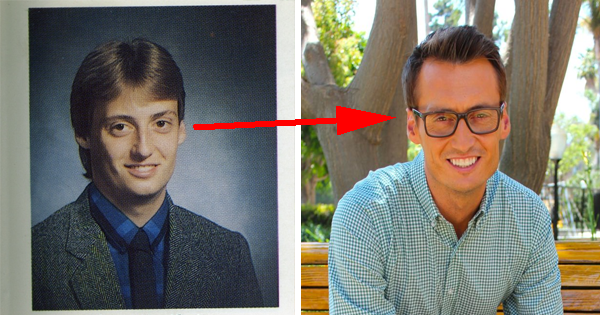For Ken Baker, girls had never been a very pressing concern. He’d begun dating when he was 16, but unlike his friends at the time, he had had no urge to go any further than simply making out. He and his girlfriend at the time, Jenny, were happy to remain sweet in their relationship, rather than explore more.
For Baker, this wasn’t much of a sacrifice, although he’d actually heard that “guys on [his] hockey team…dumped girls because they wouldn’t go all the way.” “Everyone is having sex,” Baker wrote in his memoir later, “And so should I.”
But none of this interested Baker.
He, instead, did everything he could to ward off any mocking or bullying at his lack of a sex life. Baker pursued everything else that was stereotypically classified as men’s interests: wearing backwards baseball caps, listening to hard-rock music, speaking of false sexual encounters, and reading raunchy magazines with his friends.
When Baker turned 17, he and Jenny were still dating. They both decided that they wanted to have sex together, but Baker could barely keep up a half-erection and recalled that he spent the entire time “waiting for it all to end.”
These lackluster, embarrassing experiences only continued for Baker through his college years. He began to feel depressed and confused. He knew he was attracted to women, but “the pressure to have sex [was] more of an external force (mostly fraternal and peer pressure) than an internal bubbling.”

When Baker was in his mid-20s, he began to get severe headaches, was constantly low on energy, and had milky discharge leaking from his nipples. This last symptom, however, made Baker far too embarrassed to seek out medical attention.
It wasn’t until Baker met Robin, a woman with whom he began a long-distance relationship when he was 26, that he finally got the courage to seek help. After yet another failed sexual encounter with Robin, she gently encouraged him to seek help for his anxiety, his fears, and his physical state.
That was when Baker finally received his diagnosis: He had a 2.3-centimeter large tumor on the pituitary in his brain that was causing his body to produce incredibly high levels of prolactin, the chemical that causes women to produce breast milk.
The doctor actually told him, "With levels this high, I'm surprised you've been able to have an erection in the last five years.”
For Baker, although the problem had yet to be removed, he already felt relief, "I have just learned that the cause of my male inferiority complex, of all my sexual failures, is not…my fault.”
Baker began taking anti-tumor medication and immediately felt a positive difference. "My legs feel sturdier, my mind feels sharper," Ken wrote in his memoir. "The first morning after taking the pills, I wake up with an erection so hard it feels as if it may break the skin. I realize that my penis had not gotten that hard since I was 13 or 14."
After a month of taking the anti-tumor medication, Baker had a surgery to have his tumor removed, and his physical state has only continued to get better over time. In that month, Baker essentially caught up on all the puberty – the sexual development and shift in mentality – that he hadn’t experienced in his adolescence.
Although Baker is now 30 and has had his sexual health problems acknowledged, he will have to take the pills for the rest of his life. He remains incredibly grateful for all the progress he’s made and doesn’t at all begrudge the medication. "[They’re] a reminder that I'm lucky, that this is very fragile," he says. "If I stopped taking the pills, within a year, I'd be a mess."






